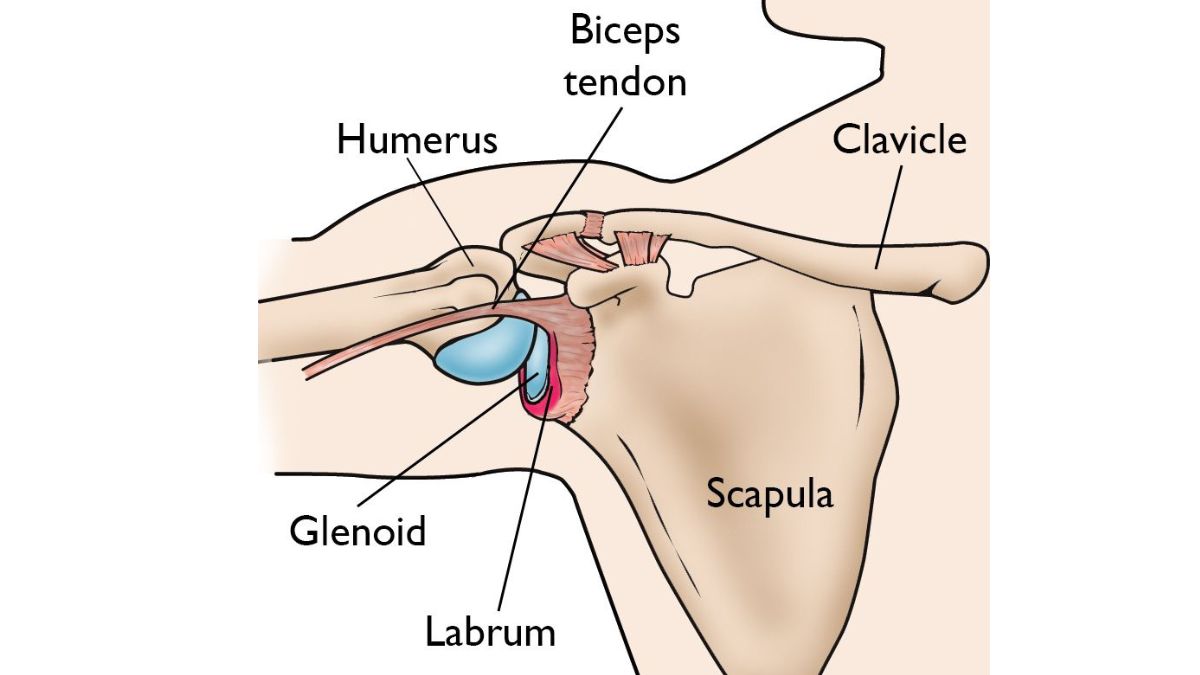HEALTH
Understanding Neurological Diseases with DoctorHub360

Neurological diseases impact millions of people globally, altering their quality of life and presenting significant challenges to healthcare systems. These complex disorders require precise diagnosis, innovative treatment options, and ongoing expert care. With technology playing an increasingly vital role in modern healthcare, platforms like DoctorHub360 are revolutionizing how we approach the understanding and management of neurological diseases.
This blog will explore the most common neurological diseases, their symptoms, and the cutting-edge solutions offered by DoctorHub360 to enhance patient care and outcomes.
What Are Neurological Diseases?
Neurological diseases refer to disorders that affect the brain, spinal cord, and nervous system. These conditions vary widely in their causes, symptoms, and severity. Some are relatively common and manageable, while others are rare and life-threatening. Neurological diseases can result from genetic factors, traumatic injuries, infections, autoimmune responses, and degenerative processes.
Understanding neurological diseases is crucial for timely diagnosis and treatment. DoctorHub360 collaborates with leading specialists and uses advanced technology to provide accessible resources for patients and healthcare professionals.
Common Neurological Diseases and Their Symptoms
1. Alzheimer’s Disease
Alzheimer’s is the most common form of dementia, affecting over 6 million Americans. It involves the progressive degeneration of brain cells, leading to memory loss, cognitive decline, and behavioral changes.
Symptoms:
- Memory lapses
- Difficulty solving problems
- Disorientation and confusion
- Personality and mood changes
DoctorHub360 offers access to specialists who employ cutting-edge diagnostic tools and therapy plans designed to slow the progression of the disease.
2. Parkinson’s Disease
Parkinson’s is a degenerative disorder of the central nervous system, commonly affecting movement. It is caused by the loss of dopamine-producing neurons in the brain.
Symptoms:
- Tremors
- Stiffness and slow movement
- Difficulty with balance and coordination
- Speech changes
DoctorHub360 connects patients with experienced neurologists and therapists who create tailored treatment plans to improve motor function and enhance quality of life.
3. Epilepsy
Epilepsy is a neurological disorder characterized by recurring, unprovoked seizures caused by abnormal electrical activity in the brain. It affects approximately 50 million people worldwide.
Symptoms:
- Recurrent seizures
- Temporary confusion
- Loss of consciousness
- Twitching or jerking of the limbs
Through DoctorHub360, patients gain access to leading epileptologists who use state-of-the-art diagnostic equipment, like EEG monitoring, to identify triggers and develop effective treatment plans.
4. Multiple Sclerosis (MS)
MS is an autoimmune disease where the immune system attacks the protective covering of nerves, leading to communication issues between the brain and the body.
Symptoms:
- Fatigue
- Numbness or weakness
- Vision problems
- Loss of coordination
DoctorHub360 simplifies the process of finding MS specialists and innovative treatment centers offering the latest in immunomodulatory therapies.
5. Stroke
Strokes occur when blood flow to the brain is interrupted, causing brain damage. They are among the leading causes of death and disability globally.
Symptoms:
- Sudden numbness or weakness, especially on one side of the body
- Difficulty speaking or understanding speech
- Sudden severe headache
- Vision issues
Leveraging telemedicine, DoctorHub360 ensures immediate consultation with stroke specialists to improve emergency intervention and reduce long-term damage.
The Role of DoctorHub360 in Managing Neurological Diseases
DoctorHub360 is a comprehensive healthcare platform designed to connect patients with expert neurological care providers, cutting-edge diagnostics, and tailored treatment plans. Here’s how DoctorHub360 supports individuals dealing with neurological diseases:
Advanced Diagnostics
DoctorHub360 collaborates with top medical institutions equipped with state-of-the-art imaging and diagnostic tools, including MRI and CT scans. This ensures accurate, early-stage identification of conditions for better patient outcomes.
Expert Consultation
The platform bridges the gap between patients and specialists, enabling seamless access to neurologists, neuropsychologists, and neurosurgeons. DoctorHub360’s specialists are leaders in their fields, offering reliable opinions and advanced therapeutic recommendations.
Personalized Treatment Plans
Understanding that every patient is unique, DoctorHub360 prioritizes customized care. From medication plans to physical therapy regimens, treatments are tailored to suit individual needs, ensuring efficient management and a higher quality of life.
Telehealth Accessibility
Leveraging digital and telemedicine capabilities, DoctorHub360 provides remote consultations and follow-ups. This is especially beneficial for patients in underserved or rural areas who might otherwise struggle to access top-quality neurological care.
Community Support
Living with a neurological illness can feel isolating. DoctorHub360 fosters a sense of community among patients by providing forums, educational resources, and support groups. This helps patients and caregivers share experiences, fostering a sense of belonging and mutual encouragement.
Why Choose DoctorHub360?
DoctorHub360 sets itself apart as a trusted partner in neurological care by combining innovative technology with expert healthcare solutions. Here’s why:
- Comprehensive Resource Hub: With blogs, webinars, and articles, DoctorHub360 equips patients with valuable insights into their conditions and treatment options.
- Expert Network: Work with renowned specialists dedicated to offering the highest standard of neurological care.
- Data-Driven Care: Through AI and data analytics, DoctorHub360 enhances diagnostic accuracy and treatment outcomes.
Steps to Take If You’re Concerned About Neurological Diseases
- Know the Symptoms: Educate yourself about the warning signs of neurological diseases for early detection.
- Consult Specialists: Seek professional advice if you suspect neurological issues.
- Explore Treatment Options: Understanding the range of available therapies is crucial to managing these diseases effectively.
- Leverage Platforms Like DoctorHub360: Take advantage of the digital tools and networks available to connect with experts and access care.
DoctorHub360 can be the starting point for your or your loved one’s neurological health journey. If you suspect a neurological condition or want preventive care, sign up today for immediate access to a network of world-class specialists.
Empower Your Care with DoctorHub360
Neurological diseases demand expert attention and innovative solutions. DoctorHub360 transforms the way individuals and families approach diagnosis and treatment, making care accessible, comprehensive, and efficient.
Navigating neurological diseases may seem overwhelming, but with DoctorHub360, expert guidance is just a click away. Whether you’re looking for a second opinion, exploring new treatment options, or simply seeking clarity, DoctorHub360 is your ultimate ally in neurological care.
HEALTH
What Is a SLAP Tear? Understanding This Common Shoulder Injury

If you’ve been experiencing shoulder pain, clicking, or a loss of strength—especially during overhead movements—you may be dealing with more than just a strain. One possible culprit is a SLAP tear, a specific type of injury to the shoulder joint that can affect everyone from athletes to weekend warriors.
What Does “SLAP Tear” Mean?
SLAP stands for Superior Labrum Anterior and Posterior. In simpler terms, it’s a tear in the top part of the labrum—the ring of cartilage that surrounds the socket of your shoulder joint. This cartilage helps stabilize your shoulder and keep the ball of your upper arm bone in place. When torn, the result can be instability, discomfort, and reduced mobility.
How Does a SLAP Tear Happen?
SLAP tears can result from either acute trauma or repetitive motion. Some of the most common causes include:
- Falling on an outstretched arm
- Lifting heavy objects or weights with poor form
- Repetitive overhead movements (common in baseball, swimming, tennis, etc.)
- Sudden pulling motions (like grabbing something while falling)
In some cases, SLAP tears can also be part of the natural wear-and-tear process, especially in people over 40.
Common Symptoms of a SLAP Tear
Not all SLAP tears feel the same, but here are some symptoms to watch for:
- Deep shoulder pain, especially during overhead activity
- A clicking or popping sensation
- Weakness or fatigue in the shoulder
- Limited range of motion
- A feeling that your shoulder is going to “slip out”
These symptoms often mimic other shoulder conditions, which is why getting an accurate diagnosis is so important.
Diagnosing a SLAP Tear
A shoulder specialist will typically begin with a physical exam and a review of your activity history. Imaging tests like an MRI can help confirm the diagnosis, though in some cases, an arthroscopic procedure may be necessary to fully visualize the tear.
For a deeper dive into how SLAP tears are diagnosed and treated, visit: https://levelupshoulder.com/slap-tears/
Treatment Options
Treatment depends on the severity of the tear and your activity level. In mild cases, rest, anti-inflammatory medications, and physical therapy may be enough to restore function. For more serious tears—especially in younger or highly active individuals—arthroscopic surgery may be recommended to repair the torn labrum.
Post-surgery, a rehabilitation program will help restore range of motion, rebuild strength, and reduce the risk of reinjury.
Don’t Ignore Shoulder Pain
A SLAP tear can seriously impact your ability to perform daily tasks and enjoy physical activity. If you’re experiencing persistent shoulder pain, especially with overhead movements, it’s worth getting it checked out. Early treatment leads to better outcomes and a quicker return to the things you love.
HEALTH
What Is Orthopedic Medicine? An Intro to Bone and Joint Health

From sore knees after a weekend hike to a torn rotator cuff that just won’t heal, many of us deal with bone, joint, or muscle pain at some point in our lives. That’s where orthopedic medicine comes in. But what exactly does it cover—and when should you see an orthopedic specialist?
Whether you’re an athlete, a weekend warrior, or simply want to stay mobile and pain-free as you age, understanding the basics of orthopedic care can help you make better decisions about your health.
What Is Orthopedic Medicine?
Orthopedic medicine is a branch of medicine focused on the musculoskeletal system, which includes your bones, joints, ligaments, tendons, muscles, and nerves. The goal is to diagnose, treat, and prevent injuries and disorders that affect movement, stability, and function.
Orthopedic specialists, also known as orthopedists or orthopedic surgeons, are trained to handle everything from acute injuries (like fractures and dislocations) to chronic conditions such as arthritis, tendonitis, and degenerative joint disease.
What Conditions Do Orthopedic Doctors Treat?
Orthopedic medicine covers a wide range of conditions affecting different areas of the body, including:
- Shoulder injuries: rotator cuff tears, labral tears, impingement
- Knee issues: ACL tears, meniscus injuries, runner’s knee, arthritis
- Spine problems: herniated discs, sciatica, scoliosis
- Hip pain: bursitis, labral tears, osteoarthritis
- Hand and wrist: carpal tunnel syndrome, fractures, tendonitis
- Foot and ankle: plantar fasciitis, sprains, Achilles tendon injuries
Many of these conditions can be treated with non-surgical methods, though surgery may be necessary in more severe cases.
Types of Orthopedic Care
Orthopedic care includes both surgical and non-surgical options, depending on the injury or condition. Treatment approaches may involve:
- Physical therapy and rehabilitation
- Injections (such as cortisone or PRP) to reduce inflammation and pain
- Bracing or casting for stability and healing
- Minimally invasive surgery, like arthroscopy
- Joint replacement surgery, typically for hips, knees, or shoulders
For example, orthopedic treatments by Level Up Shoulder, Dr. Drake focus not only on surgical repair of shoulder injuries, but also on functional rehab, strength restoration, and getting patients back to the activities they love—faster and stronger.
When Should You See an Orthopedic Doctor?
If you’re experiencing any of the following, it may be time to schedule a consultation:
- Persistent joint or muscle pain
- Swelling or stiffness that doesn’t improve with rest
- Limited range of motion in a joint
- Weakness or instability
- An injury that isn’t healing properly
- Pain that interferes with your daily life or sleep
Early intervention can prevent long-term damage and get you back to full strength sooner.
Conclusion
Orthopedic medicine plays a vital role in keeping your body moving the way it should. Whether you’ve suffered a sports injury or are dealing with years of wear and tear, orthopedic specialists are trained to help you regain mobility, reduce pain, and improve your quality of life.
From preventive care to advanced surgical procedures, orthopedic treatments are designed to keep your bones and joints working better, for longer.
HEALTH
Raising Healthy Smiles: The Essentials of Pediatric Dental Care

What Is Pediatric Dentistry?
In addition to providing dental care, pediatric dentistry promotes good oral hygiene from an early age. Unlike general dentistry, pediatric dentists focus on young patients’ unique challenges and considerations. Their specific training prepares them to prevent and treat oral health problems in newborns, kids, and teenagers. Facilities like a Pediatric Dentist in Thornton provide environments specifically designed for children, helping ease anxiety and making dental visits enjoyable experiences. A pediatric facility’s vibrant and entertaining surroundings can significantly influence a child’s desire to get dental care.
The Importance of Early Dental Visits
Starting dental visits early is an investment in lifelong oral health. These initial visits, as recommended by the American Academy of Pediatric Dentistry, set the stage for understanding the importance of dental care. These are crucial periods when dentists can introduce children to oral hygiene and the significance of caring for their teeth. By capturing a child’s interest and removing any fear associated with dental visits, these experiences contribute to effectively monitoring and guiding the development of both baby and permanent teeth.
Understanding Common Pediatric Dental Issues
Children’s dental problems, including cavities and gum disease, are sometimes written off as trivial, but if ignored, they can cause serious health problems. Children are prone to cavities due to the sugary foods they consume and their sometimes irregular brushing habits. In addition, behaviors like thumb-sucking and extended use of pacifiers can affect tooth alignment and jaw development. By attending regular dental visits, parents can gain insights from dental professionals on mitigating these risks and ensuring early intervention. A more secure oral future can result from early detection of these disorders, which can stop them from developing into more serious tooth health difficulties.
Tips for Promoting Healthy Dental Habits
Creating a routine around dental care can help instill lifelong habits in children. They must be taught to use fluoride toothpaste and clean their teeth twice daily. Flossing should also be incorporated once teeth begin to touch. These habits need reinforcement at home to foster a sense of accountability in children. Parents can use visual aids or reward systems as positive reinforcements. Demonstrating proper techniques adds value, as children are likely to imitate the actions they observe. Good oral hygiene should be framed positively as an empowering practice rather than a chore.
Nutrition’s Role in Oral Health
A balanced diet is a pillar of strong oral health. Foods containing essential minerals, particularly calcium and phosphorus, are crucial in maintaining healthy enamel and oral well-being. Nuts, leafy greens, and dairy products can all significantly improve tooth health when consumed regularly. It’s also critical to restrict the consumption of acidic drinks and sugary foods that cause cavities. The resource on WebMD highlights the importance of a balanced diet in protecting your child’s teeth. Making informed choices about diet is an impactful way for parents to exercise control over their child’s oral health outside of the dental office.
How to Choose the Right Pediatric Dentist
Choosing a pediatric dentist shouldn’t be rushed. It’s a decision that can influence a child’s view of dental care. A pediatric dentist’s ability to communicate effectively with children and a friendly, inviting office atmosphere can make visits less intimidating. You could feel more at ease reading online reviews or asking friends for recommendations. The right dentist will engage with children in a way that builds trust and encourages enthusiasm for dental care. Parents are encouraged to visit potential dental practices to assess the environment and ensure it aligns with their child’s comfort levels and needs.
Setting Up a Child-Friendly Dental Routine
Making dental hygiene a habitual, positive practice begins with creativity. Utilizing tools such as songs, colorful toothbrushes, or even digital apps tracking brushing time can turn routine into fun. Allowing your child to pick out their dental supplies can also foster a sense of ownership over their oral hygiene. Establishing a routine, like brushing after breakfast and before bed, helps to weave dental care seamlessly into daily life. Consistency is key, and positive reinforcement can encourage a child to see these activities as enjoyable and rewarding.
Navigating Dental Anxiety in Children
Dental anxiety can significantly impact a child’s willingness to receive care, but it can be managed successfully. Introducing your child to the dental office gradually and supportively can alleviate fear. Explaining dental procedures using child-friendly language and offering reassurance can demystify the experience. Techniques such as deep breathing exercises or storytelling can divert attention, making visiting less daunting. Creating a supportive environment at home and during dental visits cultivates a positive attitude toward long-term dental wellness.
-

 BLOG1 year ago
BLOG1 year agoATFBooru: A Hub for Animated Art and Community
-

 CONSTRUCTION1 year ago
CONSTRUCTION1 year agoBuilding a Home Gym in Your Basement (7 Key Renovation Tips)
-

 BLOG1 year ago
BLOG1 year agoFictionmania: A Deep Dive into the World of Transformative Stories
-

 GAMES1 year ago
GAMES1 year agoSnow Rider 3D: Unblocked Tips and Tricks for Gamers
-

 LIFESTYLE1 year ago
LIFESTYLE1 year agoVersatile Living: Stylish Indoor Outdoor Rugs with Eco-Friendly Appeal
-

 BLOG1 year ago
BLOG1 year agoGIFHQ: A Comprehensive Guide
-

 LIFESTYLE1 year ago
LIFESTYLE1 year agoAchieve Elegance with Chic Blue Formal Dresses and Redken Professional Hair Care for All Hair Types
-

 BLOG1 year ago
BLOG1 year agoVincent herbert new wife: A Detailed Overview
